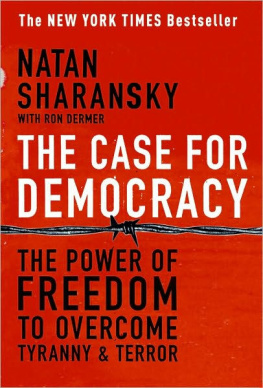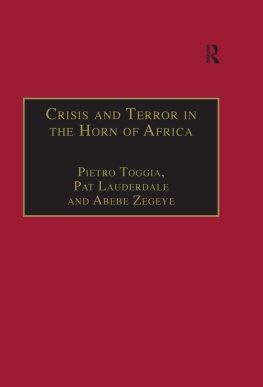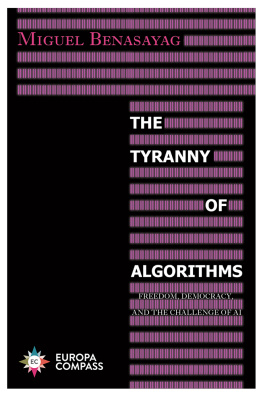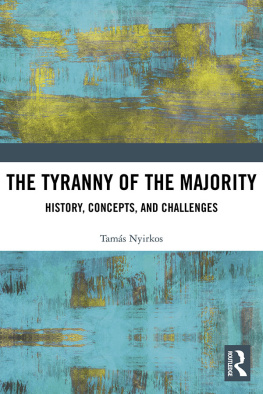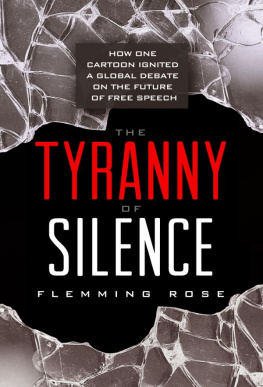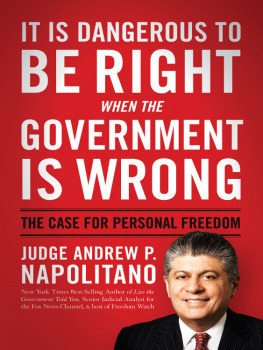Natan Sharansky - The Case for Democracy: The Power of Freedom to Overcome Tyranny and Terror
Here you can read online Natan Sharansky - The Case for Democracy: The Power of Freedom to Overcome Tyranny and Terror full text of the book (entire story) in english for free. Download pdf and epub, get meaning, cover and reviews about this ebook. year: 2009, publisher: PublicAffairs, genre: Politics. Description of the work, (preface) as well as reviews are available. Best literature library LitArk.com created for fans of good reading and offers a wide selection of genres:
Romance novel
Science fiction
Adventure
Detective
Science
History
Home and family
Prose
Art
Politics
Computer
Non-fiction
Religion
Business
Children
Humor
Choose a favorite category and find really read worthwhile books. Enjoy immersion in the world of imagination, feel the emotions of the characters or learn something new for yourself, make an fascinating discovery.
- Book:The Case for Democracy: The Power of Freedom to Overcome Tyranny and Terror
- Author:
- Publisher:PublicAffairs
- Genre:
- Year:2009
- Rating:3 / 5
- Favourites:Add to favourites
- Your mark:
- 60
- 1
- 2
- 3
- 4
- 5
The Case for Democracy: The Power of Freedom to Overcome Tyranny and Terror: summary, description and annotation
We offer to read an annotation, description, summary or preface (depends on what the author of the book "The Case for Democracy: The Power of Freedom to Overcome Tyranny and Terror" wrote himself). If you haven't found the necessary information about the book — write in the comments, we will try to find it.
The Case for Democracy: The Power of Freedom to Overcome Tyranny and Terror — read online for free the complete book (whole text) full work
Below is the text of the book, divided by pages. System saving the place of the last page read, allows you to conveniently read the book "The Case for Democracy: The Power of Freedom to Overcome Tyranny and Terror" online for free, without having to search again every time where you left off. Put a bookmark, and you can go to the page where you finished reading at any time.
Font size:
Interval:
Bookmark:
Natan Sharansky explains, clearly and cogently, the linkages between freedom and peace and between tyranny and terror. In the light of these two linkages and of his own personal experiences of both, he compares the successful ending of the Cold War with the stalled peace process in the Middle East; Helsinki with Oslo. This is a brave book by a brave manan eloquent plea for moral clarity, and a fine example of it.
Natan Sharansky has written a book about a concept that serves Americas interests and Americas values; to wit, the absolute necessity to encourage democracies in some of the most difficult places in the world, because authoritarian and totalitarian governments are inherently unreliable in terms of their commitments to peace and co-existence. He draws upon his unique experiences with the Soviet Union and with Israel to make his case in specific terms. That case is a compelling one.
As KGB prisoner, human rights hero and Jewish leader, Natan Sharansky has lived at the very center of the history of our time. In this extraordinary book, he brings his passion, experience, and intellect to make the case, long overlooked and denigrated, for the power of freedom in international affairs. The Case for Democracy is both a rebuke and a challenge to all conventional thinking. It must be read.
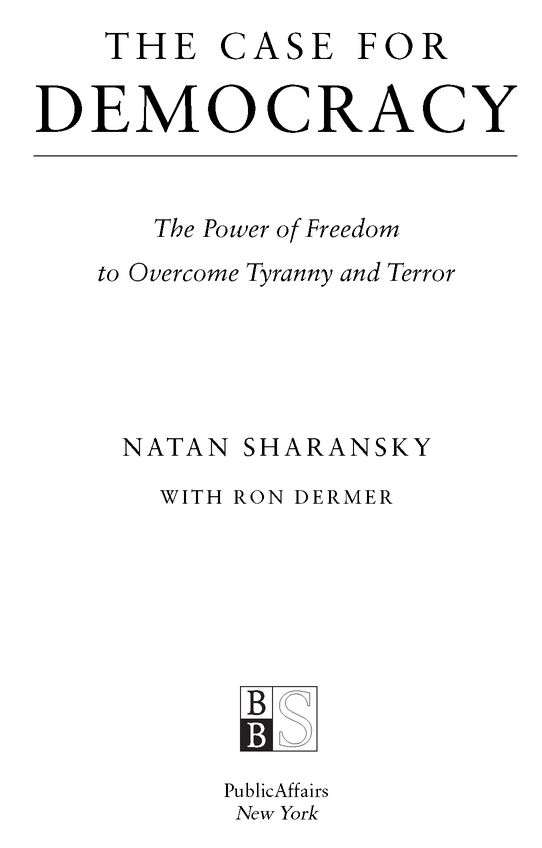
Font size:
Interval:
Bookmark:
Similar books «The Case for Democracy: The Power of Freedom to Overcome Tyranny and Terror»
Look at similar books to The Case for Democracy: The Power of Freedom to Overcome Tyranny and Terror. We have selected literature similar in name and meaning in the hope of providing readers with more options to find new, interesting, not yet read works.
Discussion, reviews of the book The Case for Democracy: The Power of Freedom to Overcome Tyranny and Terror and just readers' own opinions. Leave your comments, write what you think about the work, its meaning or the main characters. Specify what exactly you liked and what you didn't like, and why you think so.

